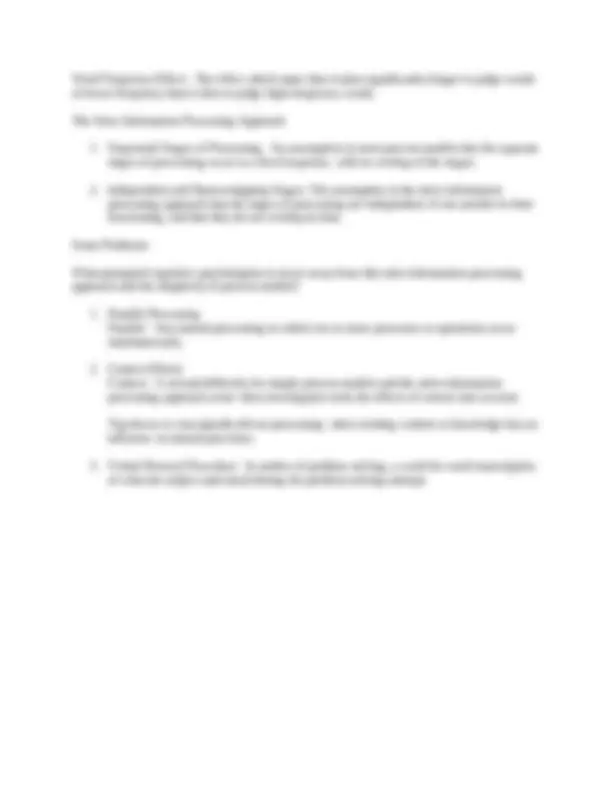



Study with the several resources on Docsity

Earn points by helping other students or get them with a premium plan


Prepare for your exams
Study with the several resources on Docsity

Earn points to download
Earn points by helping other students or get them with a premium plan
Community
Ask the community for help and clear up your study doubts
Discover the best universities in your country according to Docsity users
Free resources
Download our free guides on studying techniques, anxiety management strategies, and thesis advice from Docsity tutors
An introduction to cognitive psychology, focusing on the mental processes and activities involved in perceiving, remembering, thinking, and understanding. It also covers the concept of memory as the mental process of acquiring and retaining information. Various approaches in cognitive psychology, including reductionism and ecological validity, and the history of cognitive psychology with key figures such as wilhelm wundt and edward titchener. It also covers the assumptions and criticisms of cognitive psychology, measuring information processing, and the strict information processing approach.
Typology: Study notes
1 / 3

This page cannot be seen from the preview
Don't miss anything!


Chapter 1 Cognition: The collection of mental processes and activities used in: Perceiving Remembering Thinking Understanding Also the act of using these processes Memory: The mental process of acquiring and retaining information for later retrieval The mental storage system that enables these processes Reductionism Approach: Attempting to understand complex events by breaking them down into components. Ecological Validity: generalizability to real-world situations. History of Cognitive Psychology Wilhelm Wundt: German physiologist Edward Titchner: 1 st^ School of Thought--Structuralism History of Cognitive Psychology –The Effects of Behaviorism John Watson: Founder of Behaviorism Observable Behaviors No Mental Processes What were some challenges to behaviorism? Assumptions in cognitive psychology: Mental Processes Exist Mental Processes Can be Scientifically Studied Humans are Active Information Processors
Criticisms of cognitive psychology? Measuring Information Processing 4 types of measures used in cognitive science: